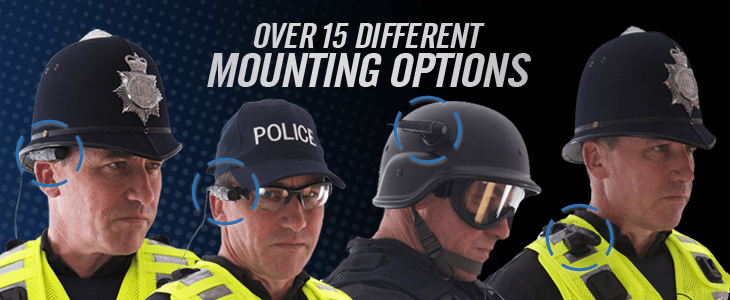Taser, the public safety company probably best known for its eponymous electric stun-guns used by law enforcement people to immobilise suspects, is announcing a new board appointment that points to its ambitions to expand the other side of its business in connected wearables and cloud-based services to manage the data collected through them. Bret Taylor, the ex-CTO of Facebook and now CEO of mobile-first word processing app Quip, is joining as an independent director.
He’s replacing Dr. Matthew McBrady, who is leaving because of a new role in the financial industry.
The move comes at an interesting time for Taser as it ramps up the division less tied to Taser zapping devices — which, while not firearms, still attract some controversy around how they may get used (or misused). In October 2013, it acquired a photo and video sharing startup called Familiar, after going up against the likes of Twitter and others who were also interested in the company. Familiar’s team and technology got incorporated into Evidence.com, the name of the division that works on wearables and cloud services.
In May of this year, that division then kicked of a large, groundbreaking pilot in London, where police have been equipped with on-body cameras to record activities, both as a way of helping to gather evidence in chaotic situations, and also in an effort for more transparency with a public that has grown increasingly mistrustful of law enforcement. Taser says that using such devices has actually helped keep police in check and led to less abusive behaviour by everyone.
It’s also taken on new leadership recently, with Marcus Womack, one of Familiar’s co-founders, now leading Evidence.com after former president Jason Droege left in March to join his buddy from college, Travis Kalanick, at Uber.
In that context, Taylor’s appointment is an interesting one, in that he’s adding expertise and connections in a number of areas to Taser’s board. In addition to his experience and credibility in building social media technology — before Facebook, he co-founded FriendFeed, which Facebook acquired — Taylor had been at Google, where he was one of creators of Google Maps. And these days, he’s cutting his teeth in enterprise services with Quip, the word processing app that hopes to break into Microsoft Word’s and Google Docs’ territory by way of its slick, mobile-first approach.
With the last of these, adding a board role at Taser to his experience, therefore, could have benefits on both sides, since it will give Taylor more enterprise credibility that could help Quip gain further traction.
But in Taylor’s words, it sounds like the move was more about a principle rather than a straight business decision.
“Taser is applying technology to important social issues that I care deeply about,” he said in a statement. “This is an important opportunity to use technology to protect civil liberties. I believe Taser is poised to revolutionize the public safety space with enhanced transparency from body-worn camera technology while leveraging the cloud to manage the massive data being generated by wearable cameras and sensors. I’m thrilled to be joining the Taser Board.”
Taylor is not the only board member with extensive tech credibility: he’ll be joining Hadi Partovi, who is an advisor and investor in Dropbox, a co-founder of Code.org, and has a very impressive resume as an angel investor (the portfolio includes Facebook, Zappos, and more), entrepreneur (he also founded Tellme, acquired by Microsoft, and iLike, acquired by MySpace when MySpace was still huge), and executive (he ran MSN.com for Microsoft among other roles at large companies).
Partovi tells me that Taylor’s addition to the board will help Taser continue not only to build out tech for law enforcement organisations — speeding up the pace of innovation in an area that has been traditionally slow — but also to help Taser expand to “adjacent” verticals where its solutions might also be applicable. “Wearables and the cloud technology behind them are impacting every industry,” he says.
